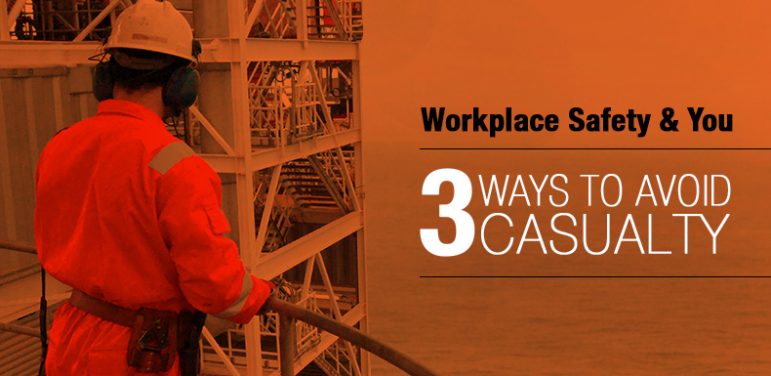Very recently, on 6th May 2017 an accident was recorded, where two workers were killed and a few severely injured when molten iron accidentally fell on them. This unfortunate incident happened at a Govt. Steel plant in West Bengal, India. The accident happened due to fall of molten steel out of a ladle which was being placed on the turret of a caster in steel melting shop of the plant.
Undesirable incidents could occur anytime, especially in a hazardous work environment. It is our duty to look into the factors that increase the risk of industrial injury, and reduce it. According to the International Labour Organization (ILO), more than 317 million accidents happen on the job each year resulting in more than 2.3 million deaths!
Therefore focusing on preventive methods is ones prime responsibility. An important factor is adopting safety prone work culture into the organisation, for which an employer must bring in Safety Training.
Safety Training can be grouped under 3 major categories: AWARENESS, COMPLIANCE & GARMENT CARE.
AWARENESS
Safety Training begins with creating awareness of the hazards that employees may encounter in their workplace and knowing the necessity of the PPE.
Workers who work with molten metal must understand the degree of heat that they may come in contact with and the PPE required for their safety. Knowledge must be given of EN ISO 11612 certified garments that provide protection to workers from convective heat, radiant heat, and molten material, or a combination thereof.
Similarly, employees that may be exposed to flash fire should be instructed to wear garments certified by the NFPA 2112 standard. This standard lays down specifications for garments developed for protection against flash fire hazard.
For employees who need protection against Arc Flash should know of the intensity of the radiant energy that they may be exposed to and also of the Arc rating required for their FR Clothing. To select appropriate clothing employer must follow NFPA 70E standard, which outlines specific PPE needed for electric arc flash and arc blast risk potentials.
Workers using high visibility garments, should be informed of the class and type of apparel necessary for their working conditions, as identified by the EN ISO 20471:2013 standard.
COMPLIANCE
Employees will only remain safe if they wear their FR Clothing correctly as advised. Along with the training on specific certified FR Clothing, they must follow the method of use. They should periodically be reminded of simple instruction, such as:
- Shirts must be tucked in at any given time
- All Garments to be properly zipped and buttoned
- No rolling up of sleeves
- No non-FR clothing to be worn over FR garments.
- No under layers, as it could melt to the skin if exposed to heat or flame.
GARMENT CARE
All FR Garments specify its Washing instructions, which must be correctly followed. It is suggested that the employer should have all garments laundered by equipped specialists. Many a times, employees try to repair small damages of their workwear. Attempting this may cause higher risk to safety.  Instead these garments should be sent to an authorized repair facility for proper repair under expert guidance.
For more information on FR Clothing, visit http://www.tarasafe.com.
Tarasafe is the largest manufacturer and supplier of Flame Retardant protective clothing in India, with the distinction of successfully executing supplies of these special garments to various Indian industry giants in the Oil and Metal industries. Tarasafe® is an ISO 9001:2008 certified Indian company and has globally positioned itself as a specialist, providing complete solutions in flame retardant protective clothing. The products offered by TaraSafe® meet the stringent international norms for Personal Protective Equipments (PPE) and the garments are CE certified as well. In addition, some products are also tested and certified as per the various NFPA / ASTM norms. From the Oil rigs in the North Sea region to the Refineries in Texas, from the Aluminium smelters in India to the Copper mines in Papua New Guinea, TaraSafe products are supplied in industries throughout various geographical areas.


Leave a Reply